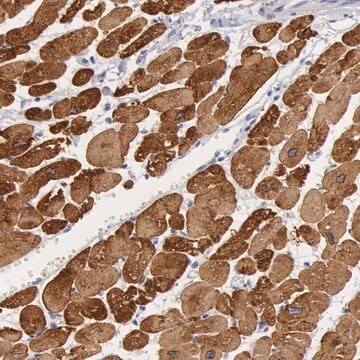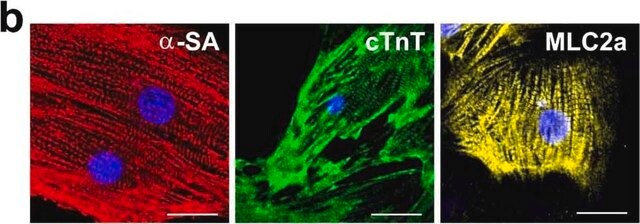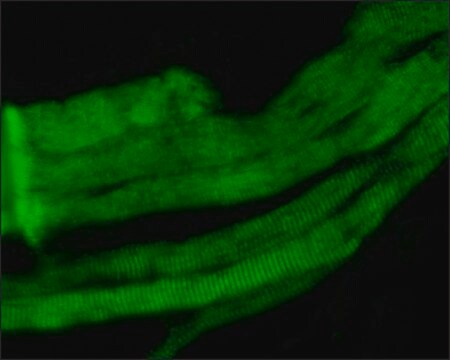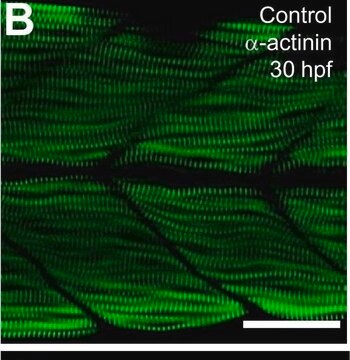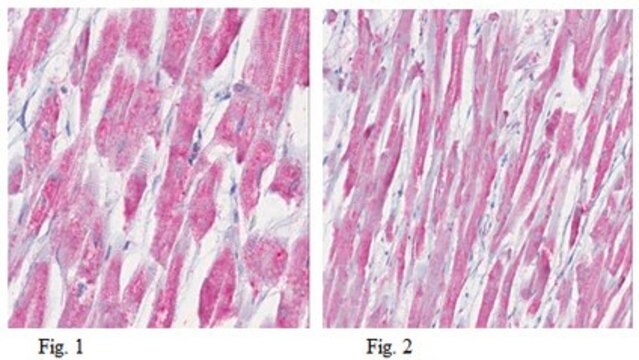MABT849
Anti-Myosin 7 (MYH7) Antibody, clone 4B51E8
clone 4B51E8, from rat
Synonym(s):
Myosin heavy chain 7, Myosin heavy chain slow isoform, MyHC-slow, Myosin heavy chain, Cardiac muscle beta isoform, MyHC-beta)
About This Item
Recommended Products
biological source
rat
antibody form
purified immunoglobulin
antibody product type
primary antibodies
clone
4B51E8, monoclonal
species reactivity
mouse
species reactivity (predicted by homology)
rat (based on 100% sequence homology), human (based on 100% sequence homology)
packaging
antibody small pack of 25 μg
technique(s)
immunofluorescence: suitable
immunohistochemistry: suitable (paraffin)
western blot: suitable
isotype
IgG2aκ
UniProt accession no.
target post-translational modification
unmodified
Gene Information
human ... MYH7(4625)
General description
Specificity
Immunogen
Application
Immunohistochemistry Analysis: A representative lot detected Myosin 7 (MYH7) in Immunohistochemistry applications (Sawano, S., et. al. (2016). PLoS One. 11(11):e0166080).
Immunofluorescence Analysis: A representative lot detected Myosin 7 (MYH7) in Immunofluorescence applications (Sawano, S., et. al. (2016). PLoS One. 11(11):e0166080).
Western Blotting Analysis: A representative lot detected Myosin 7 (MYH7) in Western Blotting applications (Sawano, S., et. al. (2016). PLoS One. 11(11):e0166080).
Western Blotting Analysis: 2 µg/mL from a representative lot detected Myosin 7 (MYH7) in mouse soleus muscle tissue lysate.
Quality
Immunohistochemistry (Paraffin) Analysis: A 1:25 dilution of this antibody detected Myosin 7 (MYH7) in mouse heart tissue.
Target description
Physical form
Storage and Stability
Other Notes
Not finding the right product?
Try our Product Selector Tool.
Certificates of Analysis (COA)
Search for Certificates of Analysis (COA) by entering the products Lot/Batch Number. Lot and Batch Numbers can be found on a product’s label following the words ‘Lot’ or ‘Batch’.
Already Own This Product?
Find documentation for the products that you have recently purchased in the Document Library.
Our team of scientists has experience in all areas of research including Life Science, Material Science, Chemical Synthesis, Chromatography, Analytical and many others.
Contact Technical Service
